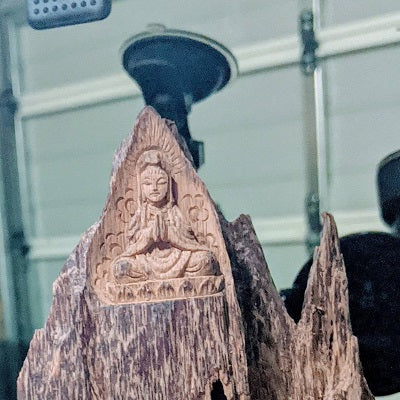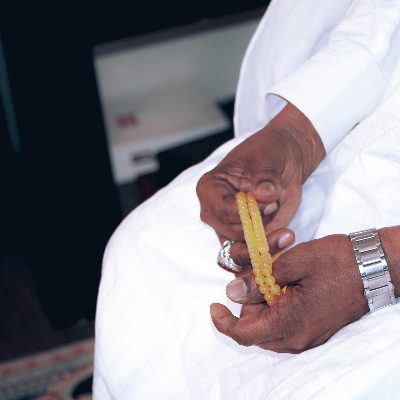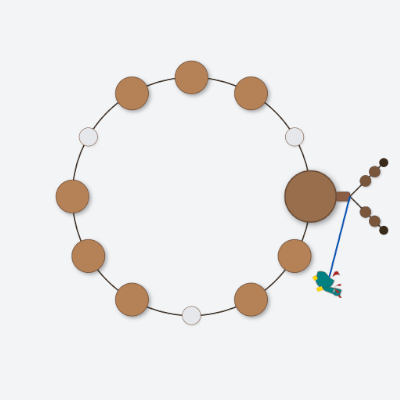Menu
-
-
F.A.Q
- How to identify genuine agarwood chip, natural or cultivated
- How to identify oil injection / absorption fake agarwood beads
- How to know if there are more than one oil in your oil
- How to make your wood bracelet or mala darker
- How to tell if an Agarwood bead sinks WITHOUT sinking it under water?
- How does back flow incense work and how do you burn it?
- Where to start if you don't know what agarwood is ?
- Why are you losing money if you buy seeds and plants?
- Which agarwood incense should I choose?
- Frequently Asked Questions
- Agarwood Related Articles
- Shipping
-
SHOP - Agarwood
-
SHOP - Other Fragrant Wood
-
SHOP - Incense Holder and Burner
-
- FREE Oud Oil guide
- Testimonials
- "Why did you buy this?"
- Contact us
- About Us
- +61430284329
- Login
-
English


Do these superstitious acts make you feel better?
October 10, 2020 7 min read
An act of kindness
In some countries, when someone sneezes, you may say “God bless you" or simply "bless you”. And he will reply “Thank you”.
Have you wondered why you said that? Maybe in your culture, everybody does that.
This superstition originated in Rome when the bubonic plague was raging through Europe. One of the symptoms of the epidemic was coughing and sneezing, and it is believed that Pope Gregory I (Gregory the Great) suggested saying “God bless you” after a person sneezed in hopes that this prayer would protect them from otherwise certain death (Library of Congress NA)
If you were the person who sneezed and heard “bless you”, would you feel better?
One thing for sure, it is an act of kindness coming from a good intention although there was no scientific evidence if it actually “cured” the sneeze. Some people called this act as superstition. But I like to call it “custom” - the way we believe, say and do things for a long time.
A local custom
I am a firm believer in science. But I am also open-minded. I respect tradition and the way people doing thing as long as there was no harm to others.
First, let me share with you a story. This story can be very familiar to you, and you may relate.
My mom’s younger brother
My mom’s younger brother passed away when he was about 40 years old. One day, my mom had a dream about him. He told my mom that he was cold and hungry. In the next morning, my mom woke up and thought of her little brother. She knew his favourite food was the roast duck and she wanted to treat him that. But he was no longer in this world, so what could she do?
You see, if she did nothing, she might feel guilty because her brother was hungry and cold. It seems illogical because he already passed away, did it really matter?
Let’s suppose she did not do anything. The image of her brother will be in her mind constantly. She would keep thinking about him. She would be distracted in her daily life. She would feel helpless and distressed.
In my custom and it may be in yours too, she would give him what he wanted. To do that, first, she bought his favourite food and some joss-paper clothes.
Next, she prepared an altar table. On that table, she placed his food and tea. She then lit three incense and whispered: “my brother, I brought you your favourite meal”.
Then, she took out a metal bucket to burn the joss-paper clothes. She believed that by burning the joss paper, he would receive it.
It is superstitious. But one positive thing about it was that my mom definitely felt better. In her mind, her brother would no longer be hungry and cold. That night, she dreamed of him again. They had a good talk. Before he went away, he told my mom he was grateful for the food and warm clothes.
Was this superstitious? I thought it was.
But, did this superstitious act work? Did it help my mom to feel at ease again? From what I saw, it sure did.
You see, what I witnessed was the use of incense and joss paper. It eased my mom mental stress. Because of it, my mom felt like she had looked after her passed-away brother.
Have you known someone who has similar experiences?.
I believe you might know someone who have been through what I have been through. Anyway, there was another way of “superstitious” act. This one involved the use of an object as a lucky charm; people called it as Talisman.
I would like to share another story with you
Buddha in the car - a Talisman that control his anger
In Vietnam, people believe in Buddhism. Quite often, you will see Buddha figurine placed inside the car. They believe Buddha will bless them and protect them.

Source: photo by Fred Moon Unplash
Can the Buddha figurine really protect the driver?
You may think it is superstitious and that is ok.
My friend has a car, inside his car is an Amitabha figurine. One day, I sat a passenger seat and witnessed a funny incident.
When he was driving, suddenly one car turn into his lane without indication. Fortunately, he could break before hitting another car. He was about to show his left hand with "the middle finger" up to the other driver.
But as Amitabha Buddha was in front of him, his middle finger had rose but quickly, all of his other fingers rose at the same time. His palm turned into a praying position and he said "A Di Da Phat" meaning Amitabha Buddha.
What just happened? He could not swear in front of Buddha, he could not raise his finger in front of Buddha. So because of the Amitabha figurine, he controlled his anger. He remained calm.
If that figurine had not been there, he would have lost his temper. When that happened, his mind would not concentrate and he would try to release anger to the other driver. Accident might happen.
So my friend, in away, this so-called superstitious act actually protected him and me as his passenger.
Here is another story
Many people worship Goddess of Mercy. If you had a chance to use a share ride service, you would notice a figurine of Quan Am (Guan Yin) either hang on the reverse mirror or just above the car audio system. At one time, I asked a driver the reason for it.
He told me that the Goddess would protect him.
“Does it work?” I asked.
“I don’t know, but seeing the Goddess every time is a constant reminding me that I have to be careful on the road. As a symbol of compassion, the Goddess would not want any accident happened to anyone. So I think it works for me.”
You may think he belief superstitious. But from the driver’s explanation, I found it logical, believable and practical.
Last story: Fengshui master and his client
A Singaporean customer scheduled a call with me to find out more about Agarwood bracelet.
He told me that he had his agarwood bracelet for a long time, but he mis-placed it somewhere. His Fengshui Master asked him to get a wild one to protect him from negative energy and attract luck.
He told me whenever he travelled; he always wore it. I asked him
“Did it work?”
He did not answer my question directly. He mentioned as long as he could remember, that Agarwood bracelet was always with him. Every time he wore it, everything was so smooth.
“Are you saying everything went smoothly because you wore that agarwood bracelet?” I asked
“I don’t know because I can’t compare the travel experience—one with the bracelet and one without it.
I can only select one action: wear it or take it off during a travel trip So really, that is not possible to compare.
But so far, whenever I wear it, I find good luck come as my Fengshui Master said. If I travelled now without a bracelet, maybe everything could go smoothly or maybe not. Who knows?
But I am used to the agarwood bracelet, I feel like I am missing something on my wrist. And without the bracelet, I can’t concentrate. The feeling like you are carrying a wallet and then you discovered that wallet is missing.” He replied
“Interesting,” I said
“ I am looking for a unique one this time. What I had last time, the lost agarwood bracelet helped me with my business relationship too. Because many people complimented my bracelet, and that was how I started a conversation”.
" Wow, very interesting and it was good to lean know this extra benefit. By the way, why do you choose Agarwood but not another bracelet?""
"Many Feng Shui Master recommended Agarwood bracelet and mala, so I followed their advices. Some of them told me to use my thumb to slowly 'flick' through the bead whenever I feel uneasy. The Agarwood will absorb that negative energy and I can remain calm. Because of that, I feel positive when I am wearing an Agarwood bracelet Anyway, show me what Agarwood bracelet do you have?"
(I won't go through more details but he picked a 18mm one after that).
Finally, there is one popular thing that many people claim it helps them feel better. You may have heard of it too. That is
Crystal healing (also known as stone healing)
There is not enough scientific evidence to support that Crystal can heal people. But I have heard people said that it worked for them.
There are many guides book about Crystal healing. Inside these books, authors showed the property of each stone, what they represent and how they heal.
But I have not seen solid scientific evidence about it
So is it superstitious? I do not know
But does these crystal healing work?
In 2001, Christopher French, a psychologist from the University of London, performed a study of about crystal healing. There were 80 volunteers. First These volunteers were told that they might feel tingling limbs, increased concentration, and heightened energy.
Next, Christopher gave 40 participants genuine gemstones. He gave the rest cheap plastic.
Participants holding the cheap plastic respond physically as the one holding genuine ones
He concluded it was because of the power of suggestion. To sum it up, if you think it works, it will work - “placebo effect” <- that is what the psychologists called it.
These crystal healing does not do us any harm. In fact, in some case, due to the placebo effect, it heals many people. So, if you are an open mind, give it ago. At the end of the day, it is all about how crystal healing makes you feel. If you feel good, would you care about if it is suspicious?
My thought
Many people think wearing a bracelet, a talisman, burning incense or joss paper are superstitious because there was no scientific evidence. And they are right.
But as above, depending on circumstances, these superstitious acts could be beneficial to you.
If you do it right (*), you could achieve peace and calm. Put it this way, psychologically; you feel “right”. Having the “right” feeling help, you perform well many other things.
You know Fengshui right? Is it supported by science? Probably not. Is it superstitious? Probably it is
But does it work?
I do not know but I have seen many successful business man having Fengshui objects and how they structure their office and house with furniture.
So if these practice work for you, does it really matter if they are superstitious?
For me , it does not. If I have an issue and there are solutions, I will give it ago.
What are your thoughts?
(*) for example, don’t burn incense and joss paper excessively, or wearing multiple talisman and bracelets all at once
Leave a comment
Comments will be approved before showing up.
Also in News

What is Tasbih? The Deep Meaning of Subhan Allah and the Role of Prayer Beads
November 09, 2025 4 min read

